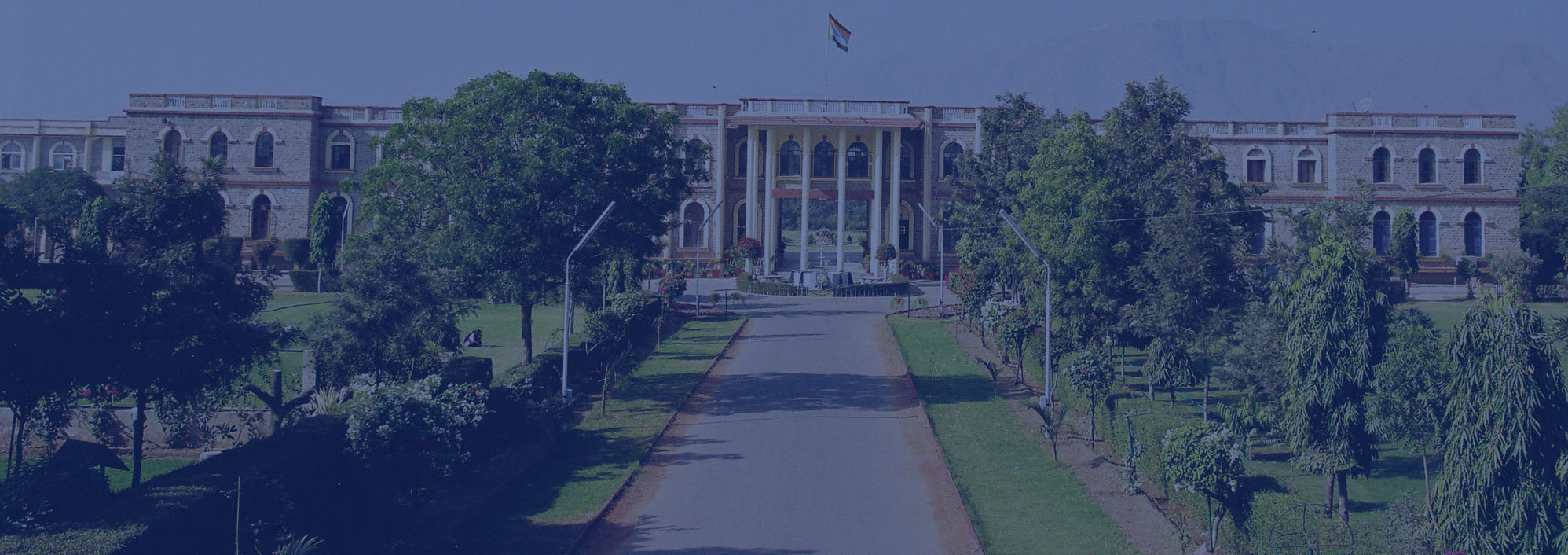

Conference on Disarmament(COD)
The Conference on Disarmament (CD), established in 1979 as the single multilateral disarmament negotiating forum of the international community, was a result of the first Special Session on Disarmament of the United Nations General Assembly held in 1978. The terms of reference of the CD include practically all multilateral arms control and disarmament problems. Currently the CD primarily focuses its attention on the following issues: cessation of the nuclear arms race and nuclear disarmament; prevention of nuclear war, including all related matters; prevention of an arms race in outer space; effective international arrangements to assure non-nuclear-weapon States against the use or threat of using nuclear weapons; new types of weapons of mass destruction and new systems of such weapons including radiological weapons; comprehensive programme of disarmament and transparency in armaments. The CD adopts its own Rules of Procedure and its own agenda, taking into account the recommendations of the General Assembly and the proposals of its Members.
Sidharth Das
Sidharth has been participating in Model UNs for nine years and has participated in 125 conferences in various capacities. Through MUNs, he has explored multiple interests such as travelling and photography. Mainstream academics remains a conundrum to him after his diverse engagement with disciplines such as sciences in school, english literature in college, and a diploma in creative photography. A brief stint in AIESEC as a Trainee Manager, volunteering at Friendicoes, organising DMUNC in DCAC, and a year with Project LEAP and Becoming I Foundation only added to this penchant of exploration. After two years of professionally photographing events and digitisation assignments, Sidharth is also associated with MASS CLIMB, a Strategic Management Consultancy Firm. Under its auspices, he engages with students across India as part of LEARN, a Social Initiative in the Education Sector. Along with other capable individuals, he advises and executes innovative Model UN Conferences and conducts Skill-set Trainings, Workshops and Interactive Sessions regularly. The focus of these activities are on learning and growth of all the stakeholders involved.
Agenda: "Challenges to the Establishment of a Nuclear Weapons Free Zone in the Middle East"
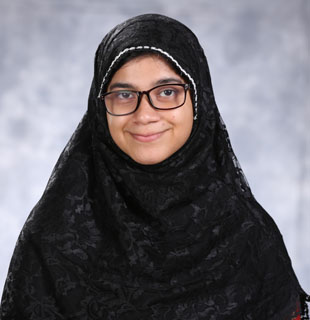
United Nations Educational, Scientific and Cultural Organization(UNESCO)
UNESCO is responsible for coordinating international cooperation in education, science, culture and communication. It strengthens the ties between nations and societies, and mobilizes the wider public so that each child and citizen has access to quality education, may grow and live in a cultural environment which is rich in diversity and dialogue, where heritage serves as a bridge between generations and peoples who can fully benefit from scientific advances and can enjoy full freedom of expression. UNESCO's messages are of increasing importance today, in a globalized world where interconnections and diversity must serve as opportunities to build peace in the minds of men and women.
Syeda Sana
Syeda Sana has trained over 1000 students across disciplines, and is presently a volunteer at Four Steps - an organization that works for the mentally challenged, and at Finger Chat – an organization that imparts training in sign language. She has been involved in training Blind School students for the last two years of her high school. She is an international level Taekwondo gold medalist and has been associated with Model United Nations Conferences in various capacities. She is interested in issues pertaining to human rights and the marginalized portions of the society. Sana is currently pursuing her bachelors in Philosophy from Lady Shri Ram College, University of Delhi.
Agenda:"The need for Contextualized Education in Schools : Oral Traditions Around the World"
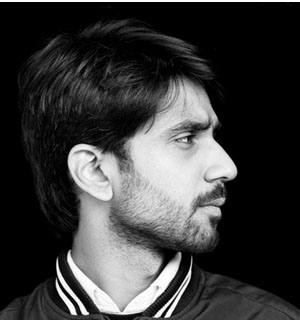
Commission on Narcotic Drugs (CND)
The Commission on Narcotic Drugs (CND) was established by Economic and Social Council (ECOSOC) resolution 9(I) in 1946, to assist the ECOSOC in supervising the application of the international drug control treaties. In 1991, the General Assembly (GA) expanded the mandate of the CND to enable it to function as the governing body of the UNODC. ECOSOC resolution 1999/30 requested the CND to structure its agenda with two distinct segments: a normative segment for discharging treaty-based and normative functions; and an operational segment for exercising the role as the governing body of UNODC.
The CND meets annually when it considers and adopts a range of decisions and resolutions. Intersessional meetings of the CND are regularly convened to provide policy guidance to UNODC. Towards the end of each year, the CND meets at a reconvened session to consider budgetary and administrative matters as the governing body of the United Nations drug programme.
Shivang Raina
Shivang comes with over six years of experience in the social development sector, having worked at Becoming I Foundation, The DO School (Germany), SOS Children's Villages of India, and Impact Guru in the past. His experience and core competencies lie in areas such as programme and project management, non-profit training and campaigns management, life skills training and development, relationship management, rights based development communication, online media advocacy, content and strategy, crowd funding, events and volunteering. He has been closely associated with Model UN conferences across India and the subcontinent for over ten years and has conducted model UN training programmes with more than 5000 students and young adults for over seven years. An avid mountain hiker, he is also trained in the Indian classical music and the Orff approach of music education. Looking forward to MCGS MUN 2017, he mentions, “The first time I came to Mayo was for the 2013 edition of the MCGS MUN. I am only glad to be participating again and I look forward to an even better simulation this year.”
Agenda: "Addressing the World Drug Problem"

Parliamentary Standing Committee on Home Affairs(PSCHA)
The need to constitute some kind of subject Committees or Department-related Parliamentary Standing Committees was being felt for the last several years. On 8 th April, 1993, it was finally decided to set up Parliamentary Standing Committee on Home Affairs, consisting of 15 members of Rajya Sabha and 30 of Lok Sabha to cover various Ministries/Departments of the Union Government in order to further strengthen the accountability of the Government to Parliament. The committee mainly focuses on two Ministries/Departments which are Home Affairs and Development in the North – East region. The intention of the committee is not to weaken or criticize the administration but to strengthen it by investing it with more meaningful Parliamentary support.
Animesh Mohan
An alumnus of Jaypee Institute of Information Technology, Animesh Mohan began participating in Model UN Conferences in the second year of his college. He was instrumental in drafting the Rules of Procedures for the first ever college-level Youth Parliament in India, Jaypee Youth Parliament- this has been co-opted by several reputed institutions and has now become the standard procedure for Youth Parliaments in the country. He has participated in conferences all over the country and has a deep interest in Indian committees and politics.
Agenda: A)"Comprehensive overhaul report for the Disaster Management System in India- special emphasis on the Sendai Framework and AMCDRR 10 point programme"
B)"Deliberation on provisions for a permanent asylum policy in India, with special emphasis on illegal migrants and political asylum requests"
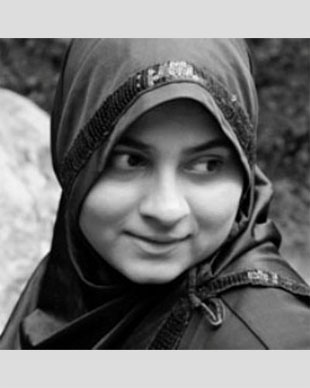
United Nations Women(UNW)
Gender equality is not only a basic human right, but its achievement has enormous socio-economic ramifications. Empowering women fuels developing economies, thereby spurring productivity and growth. Yet gender inequalities remain deeply entrenched in every society. In July 2010, the United Nations General Assembly created UN Women, the United Nations Entity for Gender Equality and Empowerment of Women. In doing so, UN Member States took a historic step in accelerating the Organization's goals on gender equality and empowerment of women. The creation of UN Women came about as part of the UN reform agenda, bringing together resources and mandates for greater impact. It merges and builds on the important work of four previously distinct parts of the UN system, which focused exclusively on gender equality and women's empowerment.
Syeda Asia
Syeda Asia is currently working for education policy implementation under Gandhi Fellowship in rural Rajasthan. She has done her Bachelors and Masters in Sociology from Lady Shri Ram College and Delhi School of Economics respectively. Having a bent of mind towards development and public administration, she has been involved with United Nations on multiple projects related to health, sanitation and minority affairs since 2013. Syeda was a Head Delegate at Harvard University, Boston, USA – World Intellectual Property Organization 2012 and has trained 10000+ students all across India in multiple skill-sets.
Agenda: Priority Theme- "Challenges and Opportunities in Achieving Empowerment of Rural Women and Girls"
Review Theme-"Participation in and access of women to the media, and information and communication technologies."
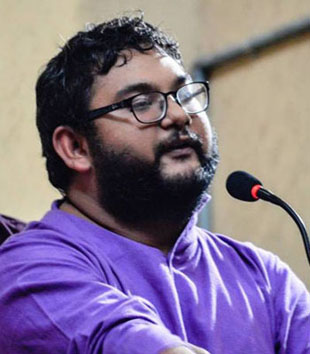
Historic Joint Crisis Committee(HJCC):Axis Powers
The Historic Joint Crisis Committee (HJCC) is not a conventional UN Body, instead, it comprises Committees of two different alliances of World War II: The Allied Powers and The Axis Powers, each consisting of the prominently involved countries. This Historic Joint Crisis Committee is an attempt to alter the devastating result of World War II and rewrite history. This committee shall be faced with an international crisis at the beginning of the conference. Here, the ritual raising of placards shall be replaced with international espionage, fast-paced decision-making, and incessant debates, all aimed at destroying the ideological enemy. Throughout the course of the committee delegates will have to deal with covert plots, terrible luck and the well meaning- or hostile- actions of the other alliance. Delegates must be prepared to take part in intense and fast paced debate on a diverse series of topics in their respective alliances while still maintaining a diplomatic outlook and conduct. All this and so much more are sure to make the HJCCs one of the most unpredictable, spontaneous, and undoubtedly exciting committees of MCGSMUN'17.
Shayer Majumdar
Shayer Majumdar completed his Masters in English Literature from Hindu College, Delhi University. He is an avid follower of international relations and world policy. HIs interests lie in debating and reading and he believes in creativity and the power of the human spirit. Winner of many accolades in various fields, Shayer is always interested in learning and evolving.
Agenda: "1st September 1939: Eve of the invasion of Poland by Germany"
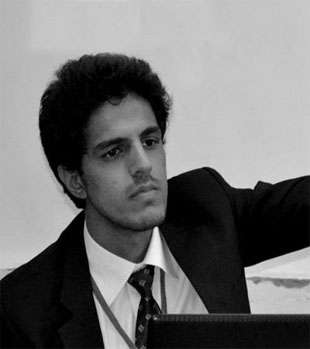
Historic Joint Crisis Committee(HJCC):Allied Powers
The Historic Joint Crisis Committee (HJCC) is not a conventional UN Body, instead, it comprises Committees of two different alliances of World War II: The Allied Powers and The Axis Powers, each consisting of the prominently involved countries. This Historic Joint Crisis Committee is an attempt to alter the devastating result of World War II and rewrite history. This committee shall be faced with an international crisis at the beginning of the conference. Here, the ritual raising of placards shall be replaced with international espionage, fast-paced decision-making, and incessant debates, all aimed at destroying the ideological enemy. Throughout the course of the committee delegates will have to deal with covert plots, terrible luck and the well meaning- or hostile- actions of the other alliance. Delegates must be prepared to take part in intense and fast paced debate on a diverse series of topics in their respective alliances while still maintaining a diplomatic outlook and conduct. All this and so much more are sure to make the HJCCs one of the most unpredictable, spontaneous, and undoubtedly exciting committees of MCGSMUN'17.
Harshvardhan Yadav
Harsh Vardhan Yadav has graduated in Journalism from University of Delhi and is currently pursuing his masters in Sociology from Delhi School of Economics. He has been associated with MASS CLIMB since 2015, a strategic management consultancy firm, providing inputs on the education sector and assisting in field work. He has been actively involved in Model UN Conferences in various capacities; as a delegate, judge, trainer and advisor. He has served as the Secretary General for Delhi University Model UN Conference 2015, a pan University event.
Agenda: "1st September 1939: Eve of the invasion of Poland by Germany"
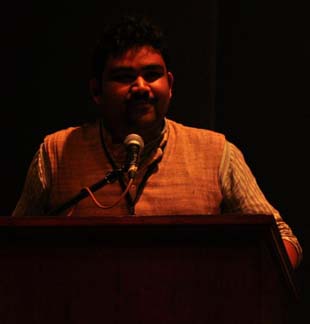
International Press Corps(IPC)
Founded in 1948, the United Nations Correspondents Association has a long history of providing representation and support to the members of the U.N. press corps. These journalists are an essential part of the way international politics operate in the modern world, acting as the link between the U.N. and the public. With the multitude of U.N. committees and assemblies making critical decisions towards current conflicts, contemporary issues, past wounds, and future possibilities, there has to be a way through which these can be shared. Press corps correspondents work tirelessly to disseminate the vital information related to these decisions in a fair and balanced manner to those who will be affected by these decisions.
Pallav Kumar Singh
Pallav Kumar Singh is an entrepreneur and currently consulting a think tank advocating policy for the MSME sector and working in close coordination with the Indian government.. He is an Aerospace engineer by his education and his association with Model United Nations Conferences span 9 years and over 60 such conferences. He looks forward to MCGSMUN 2017 and is hopeful that he will be able to contribute to create an enabling environment for learning and nurturing the spirit of healthy debate